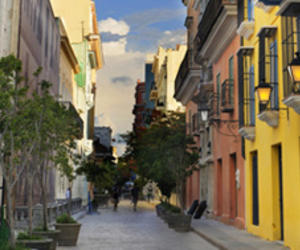US embargo of Cuba, half a century later
- Submitted by: manso
- Editorial Articles
- 09 / 06 / 2011

MERIDA, Mexico – Fifty years ago this week, on September 4, 1961, the U.S. Congress passed the Foreign Assistance Act of 1961 which prohibited all aid to Cuba and authorized the President to declare a “total embargo upon all trade” with that Caribbean island nation.
Advocates heralded this bold move as a sure measure to “create the conditions” necessary for Fidel Castro to be removed from power “within one year.”
The American conceit was that, denied aid and trade with the United States, the Castro government would face an internal uprising, and that his days in power were numbered.
Fast forward half a century, and both Castro and the embargo remain.
The embargo, in many ways, represents the worse of the U.S., since it makes America seem like a petty, vindictive and irrational nation. And in both political and economic terms, the embargo has been a complete failure of U.S. foreign policy.
The embargo, rather than weakening Castro, emboldened him. For decades he has been able to position himself as a champion against impossible odds. The Cuban nation has rallied around him, as much from their national pride as for their affection for this “David” who has stood firm against “Goliath.”
Around the world, enemies of the United States have been able to point to the embargo as proof of America’s vindictive nature, of its willingness to deliberately enact a policy to punish innocents and impoverish an entire nation.
As a foreign policy instrument, the embargo has also failed. It has not done anything to make the Cuban people more free, and it has denied Americans of the right to travel freely as they see best. For American business interests, billions of dollars have been lost to exporters – from farmers in the Midwest to Silicon Valley entrepreneurs.
In the eyes of the developed world, it has been a blemish on America’s standing. The United Nations routinely condemns the embargo as an instrument of cruelty and an abuse of power. The embargo has enhanced Castro’s prestige and standing – allowing him to maneuver vast foreign aid first from the Soviet Union, then from the European Union and now from China and Venezuela.
Throughout Latin America, many nations feel compelled to defend the Cuban government on the principle that no nation has the right to interfere in the internal affairs and socioeconomic evolution of another nation.
Mexico, for decades, has gone out of its way to extend every conceivable assistance to Havana precisely to remind Washington that it must act fairly with its neighbors. (When Washington demanded that the Organization of American States, the OAS, expel Cuba and that nations break off diplomatic relations with Havana, only Mexico stood firm, voting against expulsion and refusing to break diplomatic relations. Indeed, with the demise of the Soviet Union, the largest Cuban diplomatic presence in the world is in Mexico City.)
In the U.S., decades have worn down support for the embargo as well. In 2000, the U.S. Congress enacted the Trade Sanctions Reform and Export Enhancement Act, simply to allow American farmers and pharmaceutical companies to resume sales of food and medical supplies on a cash-only basis. American exports of these products went from nothing in 2000 to almost $700 million by 2008. Officials estimate that total sales of American agricultural products to Havana could easily top $1 billion if financing were made available.
All that aside, a year ago this September President Barack Obama extended the embargo through September 14, 2011, arguing that the embargo “is in the national interest of the United States.”
It is not.
And it is time the U.S. recognized a failed policy for the failure that it is, and simply let the embargo expire. This would not only be the wise and right thing to do, but would allow the U.S. to turn a new page in its relations with the whole of Latin America.
Allowing the embargo to expire would be change Latin America can believe in.
Source: http://newamericamedia.org/2011/09/us-embargo-of-cuba-half-a-century-lat...
Comments